Mud, sweat and cheers: The rise of obstacle course racing
- Published
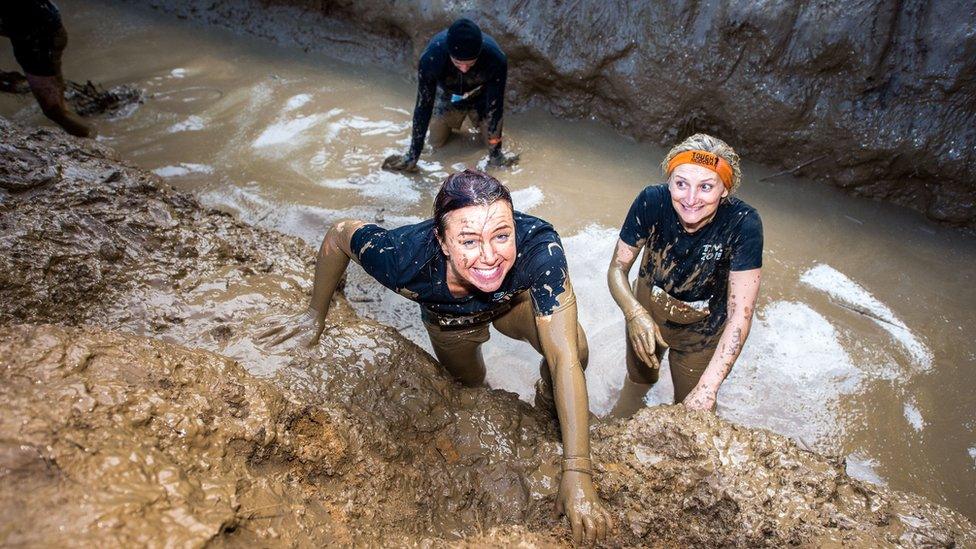
The events can generate a "sense of community" according to a sports psychologist
Crawling through tight muddy tunnels, wading across icy water, dodging electric wires and jumping over fire. This is not everyone's idea of fun - but a multimillion-pound industry has grown on the back of increasing numbers of women and men doing just that.
Doing a "mud run" might sound like an unpleasant and painful way to spend a weekend, but it is actually the fastest growing mass participation sport in the UK. As many as 250,000 people take part in more than 150 events each year, according to the Obstacle Course Racing Association (Ocra).
It is not a cheap sport. Between £50 and £80 is spent on entering most events, but in some cases people fork out more than £100 to hurl their exhausted, dirt-encrusted bodies across gruelling courses.
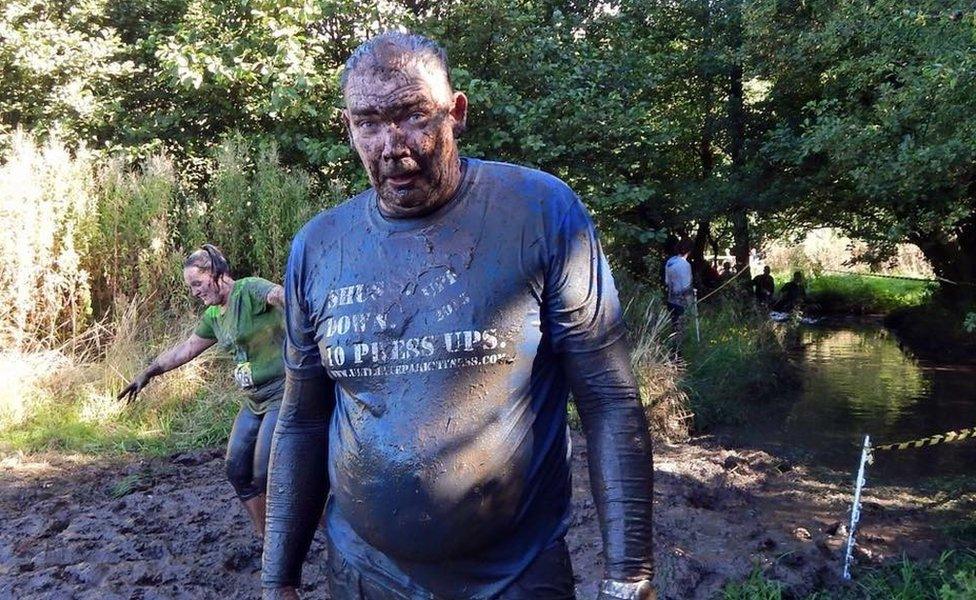
People wade through open water and crawl through mud during events
When you ask them why do they do it, they come up with a similar set of answers. Obstacle courses are above all "fun" and a "challenge", often tackled with friends.
There is always said to be a great atmosphere and the camaraderie drives people on, but the key point is the "anti-competitiveness" - how long it takes to complete the circuit is irrelevant.
"You all help each other out to get round - I've even had complete strangers putting their hands on my bum helping get me over some of the obstacles," said lawyer Carolle Brown, 42, from Nottingham, who has taken part in four events.
Dr Mustafa Sarkar, a senior lecturer in sport and exercise psychology at Nottingham Trent University, said the events could generate a "sense of community" and help people "stretch themselves physically and mentally".
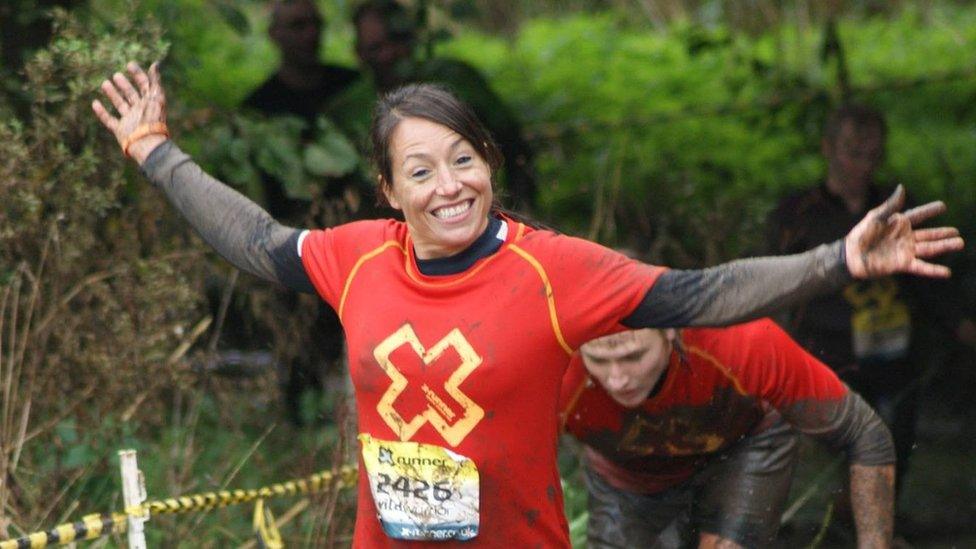
Carolle Brown said she enjoys the camaraderie of obstacle course racing
"There is a sense of motivation, being among friends and doing it as team," he said.
"People who go through these particular events can build up coping strategies and learn skills that can apply to their work life, to their personal life and be able to deal with setbacks and challenges."
Some mud runners talk about their "amazing bruises", which they proudly show off to colleagues, and some will tell you that the risk of injury is part of the thrill.
So where did it all begin?
Obstacle courses have been around for a long time, but Billy Wilson, also known as Mr Mouse, is largely credited with staging the first commercial race, in Wolverhampton, in 1987.
He said he came up with Tough Guy, a brutal cross country run with a number of perilous obstacles, so competitors could "experience the deprivations of the First World War" and "keep them thinking of those horrors".
Held on Mr Wilson's own land in winter, often in freezing temperatures, Tough Guy's obstacles became increasingly merciless, developing daunting names such as the "Vietcong torture chamber tunnels" and "Stalag escape".
In 2000, entrants even had to carry a wooden cross over the course in memory of the suffering of Jesus.
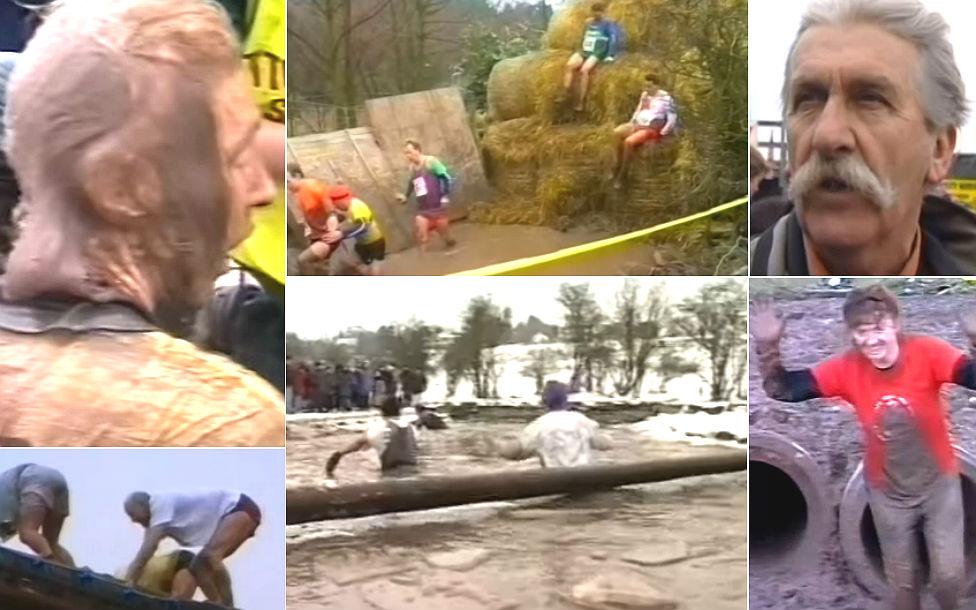
Billy Wilson (top right) is believed to have staged the first commercial obstacle course run

Participants had to carry crosses during Tough Guy in 2000
"I was wandering across the field [one year] thinking 'what can I do to make them so horrified they wouldn't come again?," he said.
"And so we built all these obstacles, traps, tunnels, that require mental and physical ability."
Despite the potential risks and apparent danger, competitors returned each year in increasing numbers. The last ever event was held in January with about 7,000 people taking part.
Mr Wilson said he had tested some "really dangerous" obstacles ahead of events, including one that involved trying to swim underneath a blue plastic sheet 15m (49ft) in length, which left him with "no oxygen" when he came up to breathe.
"We go to extremes to give people a challenge in life," he said.
The former soldier has likened the event to having a "near death" experience, a break from normal life, but it is also about "overcoming fear" and looking after one another.

People who enter Tough Mudder events have to dodge electric wires on one part of the course
But how safe is it? Cuts, sprains, dislocations and fractures do happen - and in one case dozens of people ended up with diarrhoea and vomiting following an event in Nottingham.
Thankfully, deaths are extremely rare with only three known fatalities in the past 17 years in the UK - and there is no suggestion that the course design or organisers were to blame.
Mark Leinster, the chief executive of Ocra, which is aiming to have the sport officially recognised, said there needed to be a balance between challenge and safety and it had succeeded in stopping four races from happening last year over safety concerns.
However, not everyone supports the sport being formally organised by a governing body; they would argue it does not need one.
"Like it or not, with a sport that is attracting so much mass participation interest, if we don't form it, then somebody else will," Mr Leinster said.
"There will come a time when the Department for Culture, Media and Sport says, 'you know what, this needs governing because there are races out there hurting people and this needs to be controlled'."

Participants help each other whether they know them or not, according to people who enter

Those who take part have something to prove, according to Tough Mudder's founder
What is unquestionable is the sport is now big business.
Will Dean, who is originally from Worksop in Nottinghamshire, but now based in New York, co-founded Tough Mudder, with Guy Livingstone, in 2010.
The event has gone on to become huge, with more than two million participants to date, races across several countries, big-name sponsorship deals and TV shows in the US and the UK. In 2015 Tough Mudder recorded a turnover of more than £10.5m in the UK alone.
This success has come despite a courtroom battle in 2011 with Tough Guy's Mr Wilson over accusations that Mr Dean stole his idea, something Mr Dean has always denied. The matter was eventually settled out of court, with a reported $750,000 (£446,000) being paid to Mr Wilson.
Mr Dean said his desire was to create a "social" and "fun" experience to be enjoyed with friends, which was at the same time a physical and mental challenge.
"We have tried to blend challenge with goofy fun… people want to prove something," he said.
New for this year is the Augustus Gloop, named after the rotund Roald Dahl character who gets sucked up a pipe in Willy Wonka's chocolate factory. To conquer it, participants will have to clamber up the inside of a tube while water rushes down.
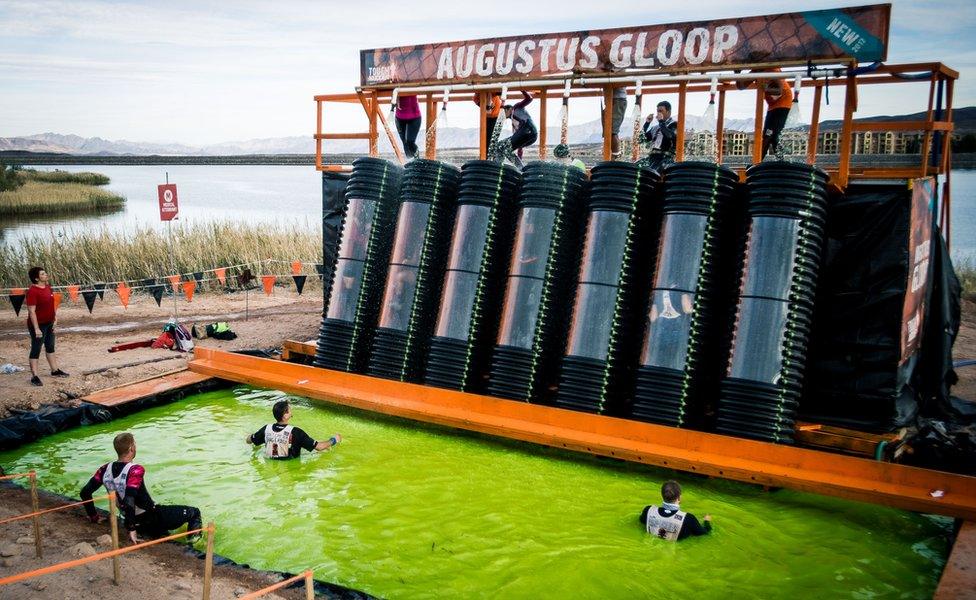
Tough Mudder creates new obstacles each year
Maybe not all the current events will be around in the next decade, but the sport itself probably will be as there are plenty of people ready to make their debut.
Stella Lacey, 34, a dental nurse from Nottingham, said she had never committed to any kind of sporting activity in the past, but is set to take part in her first mud run.
"Some family members were completely shocked that I of all people would look at signing up to something like this," she said.
"To do any of the runs would be more of a personal challenge for me... but I have to prove to myself I can do it."
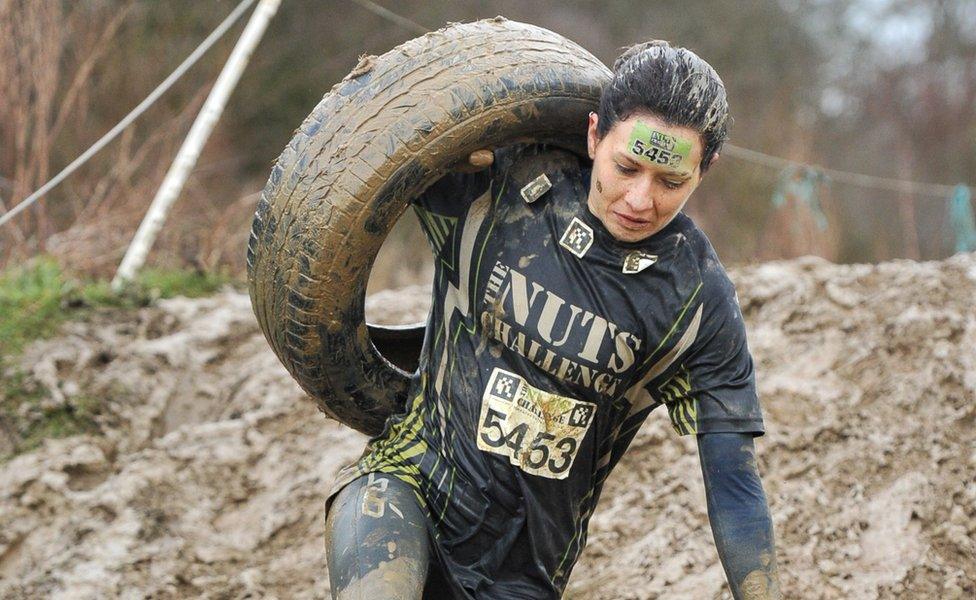
Surrey-based Nuts Challenge has been going for about seven years
- Published28 January 2017
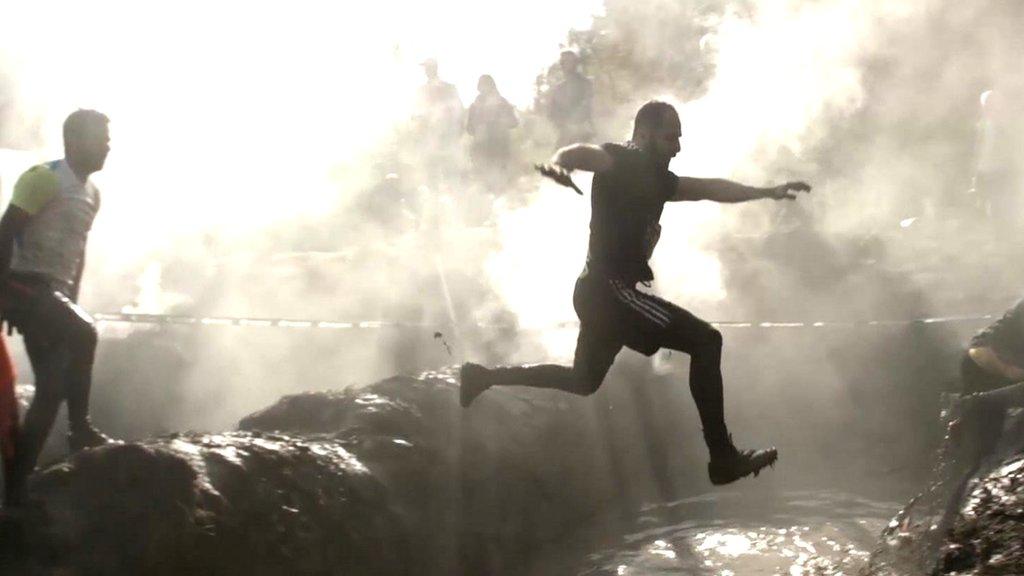
- Attribution
- Published3 April 2019

- Published9 June 2014
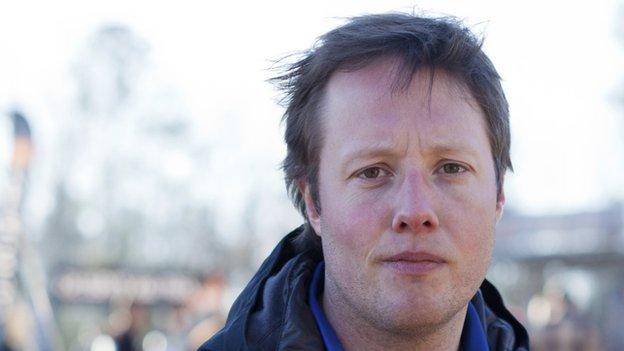
- Attribution
- Published13 August 2018